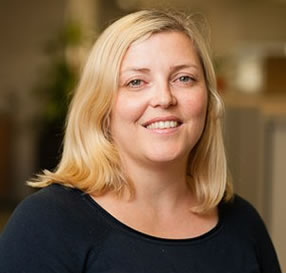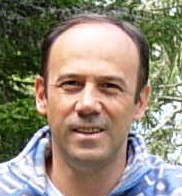Studying at the University of Verona
Here you can find information on the organisational aspects of the Programme, lecture timetables, learning activities and useful contact details for your time at the University, from enrolment to graduation.
Academic calendar
The academic calendar shows the deadlines and scheduled events that are relevant to students, teaching and technical-administrative staff of the University. Public holidays and University closures are also indicated. The academic year normally begins on 1 October each year and ends on 30 September of the following year.
Course calendar
The Academic Calendar sets out the degree programme lecture and exam timetables, as well as the relevant university closure dates..
| Period | From | To |
|---|---|---|
| primo semestre (lauree) | Sep 28, 2020 | Dec 23, 2020 |
| secondo semestre (lauree) | Feb 15, 2021 | Jun 1, 2021 |
| Session | From | To |
|---|---|---|
| sessione invernale | Jan 11, 2021 | Feb 12, 2021 |
| sessione estiva | Jun 7, 2021 | Jul 23, 2021 |
| sessione autunnale | Aug 23, 2021 | Sep 17, 2021 |
| Session | From | To |
|---|---|---|
| sessione autunnale (validità a.a. 2019/20) | Dec 9, 2020 | Dec 11, 2020 |
| sessione invernale (validità a.a. 2019/20) | Apr 7, 2021 | Apr 9, 2021 |
| sessione estiva (validità a.a. 2020/21) | Sep 6, 2021 | Sep 8, 2021 |
| Period | From | To |
|---|---|---|
| Vacanze di Natale | Dec 24, 2020 | Jan 6, 2021 |
| Vacanze di Pasqua | Apr 3, 2021 | Apr 6, 2021 |
| Vacanze estive | Aug 9, 2021 | Aug 15, 2021 |
Exam calendar
Exam dates and rounds are managed by the relevant Economics Teaching and Student Services Unit.
To view all the exam sessions available, please use the Exam dashboard on ESSE3.
If you forgot your login details or have problems logging in, please contact the relevant IT HelpDesk, or check the login details recovery web page.
Should you have any doubts or questions, please check the Enrollment FAQs
Academic staff
 silvano.corbella@univr.it
silvano.corbella@univr.it
 tamara.fioroni@univr.it
tamara.fioroni@univr.it
 martina.menon@univr.it
martina.menon@univr.it
 maurizio.pizzamiglio@univr.it
maurizio.pizzamiglio@univr.it
 fabio.sartori@univr.it
fabio.sartori@univr.it
 alex.sclip@univr.it
alex.sclip@univr.it

Vannucci Virginia
 virginia.vannucci@univr.it
virginia.vannucci@univr.it
Study Plan
The Study Plan includes all modules, teaching and learning activities that each student will need to undertake during their time at the University.
Please select your Study Plan based on your enrollment year.
1° Year
| Modules | Credits | TAF | SSD |
|---|
2° Year activated in the A.Y. 2021/2022
| Modules | Credits | TAF | SSD |
|---|
3° Year activated in the A.Y. 2022/2023
| Modules | Credits | TAF | SSD |
|---|
| Modules | Credits | TAF | SSD |
|---|
| Modules | Credits | TAF | SSD |
|---|
| Modules | Credits | TAF | SSD |
|---|
| Modules | Credits | TAF | SSD |
|---|
Legend | Type of training activity (TTA)
TAF (Type of Educational Activity) All courses and activities are classified into different types of educational activities, indicated by a letter.
Statistics (2021/2022)
Teaching code
4S00121
Academic staff
Coordinator
Credits
9
Language
Italian
Scientific Disciplinary Sector (SSD)
SECS-S/01 - STATISTICS
Period
primo semestre (lauree) dal Sep 20, 2021 al Jan 14, 2022.
Learning outcomes
This module provides the basic techniques of descriptive statistics, probability and statistical inference to undergraduate students in economics and business studies. Prerequisite to the course is the mastering of a few basic mathematical concepts such as limit, derivative and integration at the level of an undergraduate first year introductory course in calculus. Overall, these techniques provide the necessary toolkit to carry out quantitative analyses in the processes related to the observation and understanding of collective phenomena. From a practical point of view, they are necessary for descriptive, interpretative and decision-making purposes and for conducting statistical studies related to economic and social phenomena. In addition to providing the necessary mathematical apparatus, the course also provides the conceptual tools for a critical evaluation of the presented methodologies. At the end of the course, students should be able to understand statistical information, carry out statistical analyses of economic and social phenomena, and to use basic statistical techniques and models for decision-making in business enterprise.
Program
a) Descriptive statistics
• Data collection and classification; data types.
• Frequency distributions; histograms and charts.
• Measures of central tendency; arithmetic mean, geometric mean and harmonic mean; median; quartiles and percentiles.
• Fixed-base indices and chain indices; Laspeyres and Paasche indices.
• Variability and measures of dispersion; variance and standard deviation; coefficient of variation.
• Moments; indices of skewness and kurtosis.
• Multivariate distributions; scatterplots; covariance; variance of the sum of more variables.
• Multivariate frequency distributions; conditional distributions; chi-squared index of dependence; index of association C; Simpson’s paradox.
• Method of least squares; least-squares regression line; Pearson’s coefficient of linear correlation r; Cauchy-Schwarz inequality; R-square coefficient; explained deviance and residual deviance.
b) Probability
• Random events; algebras and sigma-algebras; probability spaces and event trees; combinatorics.
• Conditional probability; independence; Bayes theorem.
• Discrete and continuous random variables; distribution function; expectation and variance; Markov and Chebyshev inequalities.
• Discrete uniform distributions; Bernoulli distribution; binomial distribution; Poisson distribution; geometric distribution.
• Continuous uniform distributions; normal distribution; exponential distribution.
• Multivariate discrete random variables; joint probability distribution; marginal and conditional probability distributions; independence; covariance; correlation coefficient.
• Linear combinations of random variables; average of independent random variables; sum of independent and Gaussian random variables.
• Weak law of large numbers; Bernoulli’s law of large numbers for relative frequencies; central limit theorem.
c) Inferential statistics
• Sample statistics and sampling distributions; chi-square distribution; Student-t distribution; Snedecors-F distribution.
• Point estimates and estimators; unbiasedness; efficiency; consistency; estimate of the mean, of a proportion and of a variance.
• Confidence intervals for a mean, for a proportion (large samples) and for a variance.
• Hypothesis testing; power and observed significance level; one and two tails tests for a mean, for a proportion (large samples) and for a variance; hypothesis testing for differences in two means, two proportions (large samples) and two variances.
SUPPORTING MATERIAL
Detailed indications, regarding the use of the textbook, will be given during the course. Supporting material (written records of the lessons, exercises with solutions, past exam papers with solutions, etc.) is available on the E-learning platform of the University (Moodle).
TEACHING METHODS
Students are supposed to have acquired mathematical knowledge of basic concepts such as limit, derivative and integral.
Course load is equal to 84 hours. Exercise sessions are an integral part of the course and, together with the classes, they are essential to a proper understanding of the topics of the course. The working language is Italian. In addition to lessons and exercise hours, there will also be tutoring hours devoted to revision. More detailed information will be available during the course.
Due to the COVID-19 health emergency, the way lessons will be delivered might change during the course of the semester. In any case, distance learning will always be guaranteed so that all face-to-face lessons will be recorded and made available for later viewing.
Bibliography
Examination Methods
The final exam consists of a written test (lasting about 2 hours and 30 minutes) made up of a selection of exercises and multiple choice questions. For the written test, the Moodle's QUIZ tool might be used. During the exam, only a calculator can be used and no other material (books, notes, etc.) will be allowed. The written test will be followed by an oral test, which can only be accessed by students who have obtained at least a pass in the written test. To take the tests, students must present themselves with a university card or a suitable identification document.
For the 2021/2022 academic year, it is likely that students will have the possibility to request (according to the rules established by the Rector) a remote examination, on the basis of problems directly connected to the COVID-19 heath emergency. Regardless of the modality (face-to-face or remote), the exam will be calibrated to guarantee the same level of difficulty. Finally, we remind that, as far as the examination methods are concerned, there are no differences according to the number of lessons attended.
A noncompulsory intermediate test on the first part of the program (typically on descriptive statistics and a part of probability) is planned for the beginning of November. The passing of this intermediate test can entail an increase of at most three points of the result obtained in the written test (if the written test is taken and passed in one of the two winter examination sessions).
Type D and Type F activities
| years | Modules | TAF | Teacher |
|---|---|---|---|
| 1° | Future matters | D |
Alessandro Bucciol
(Coordinator)
|
| 1° | Future matters | D |
Alessandro Bucciol
(Coordinator)
|
| years | Modules | TAF | Teacher |
|---|---|---|---|
| 1° | Design and Evaluation of Economic and Social Policies | D |
Federico Perali
(Coordinator)
|
| 1° | Public debate and scientific writing - 2020/2021 | D |
Martina Menon
(Coordinator)
|
| 1° | Wake up Italia - 2020/2021 | D |
Sergio Noto
(Coordinator)
|
| years | Modules | TAF | Teacher | |
|---|---|---|---|---|
| 1° | Ciclo di video conferenze: "L’economia del Covid, Verona e l’Italia. Una pandemia che viene da lontano?" - 2020/21 | D |
Sergio Noto
(Coordinator)
|
|
| 1° | Ciclo tematico di conferenze (on-line): “Come saremo? Ripensare il mondo dopo il 2020” - 2020/21 | D |
Federico Brunetti
(Coordinator)
|
|
| 1° | Marketing plan - 2020/21 | D |
Virginia Vannucci
(Coordinator)
|
|
| 1° 2° 3° | Data Analysis Laboratory with R (Verona) | D |
Marco Minozzo
(Coordinator)
|
|
| 1° 2° 3° | Data Visualization Laboratory | D |
Marco Minozzo
(Coordinator)
|
|
| 1° 2° 3° | Python Laboratory | D |
Marco Minozzo
(Coordinator)
|
|
| 1° 2° 3° | Data Science Laboratory with SAP | D |
Marco Minozzo
(Coordinator)
|
|
| 1° 2° 3° | Advanced Excel Laboratory (Verona) | D |
Marco Minozzo
(Coordinator)
|
|
| 1° 2° 3° | Excel Laboratory (Verona) | D |
Marco Minozzo
(Coordinator)
|
|
| 1° 2° 3° | Programming in Matlab | D |
Marco Minozzo
(Coordinator)
|
|
| 1° 2° 3° | Programming in SAS | D |
Marco Minozzo
(Coordinator)
|
|
Career prospects
Module/Programme news
News for students
There you will find information, resources and services useful during your time at the University (Student’s exam record, your study plan on ESSE3, Distance Learning courses, university email account, office forms, administrative procedures, etc.). You can log into MyUnivr with your GIA login details: only in this way will you be able to receive notification of all the notices from your teachers and your secretariat via email and soon also via the Univr app.

 045 802 8494
045 802 8494
























